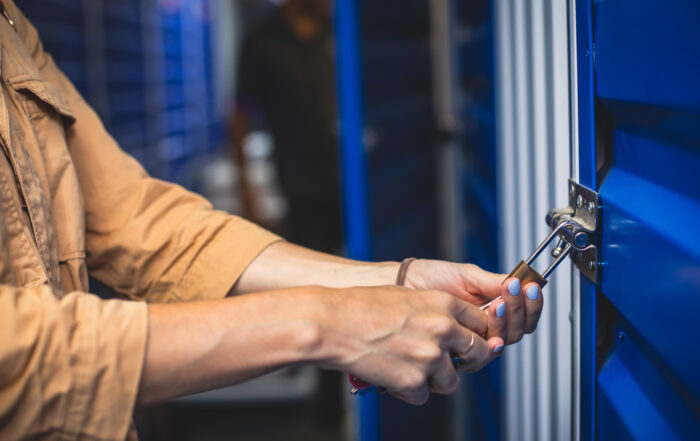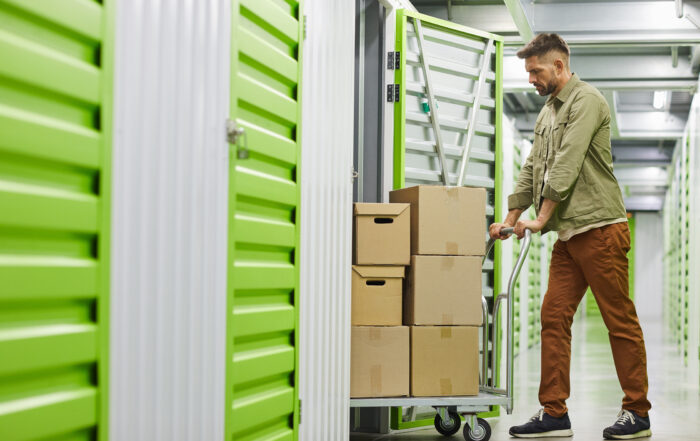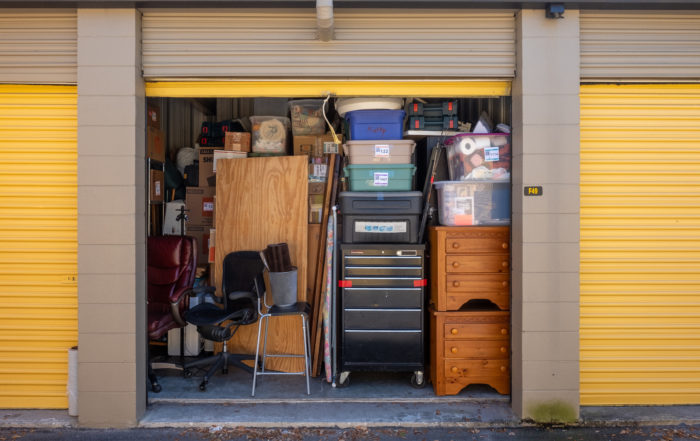5 Damaging Effects of Winter on your Car
5 Damaging Effects of Winter on your Car
We have plenty of ways to stay warm in the winter. Your car, on the other hand, isn’t so lucky. You can’t put hot cocoa in the engine, kindle a warm, crackling fire in the back seat, or put warm bunny slippers on the tires. If left outside, a car is at the mercy of the elements. Harsh winter weather can do a number on any automobile. We have written about how to store your car for the winter in an earlier blog; today, we’ll discuss 5 ways winter can damage your car that can be prevented with indoor auto storage.
-
Drained Battery
In freezing weather, your battery is more prone to running out of juice. The stuttering sound of a dead battery can ruin a day. Most car batteries last 2-3 years, so it’s a good idea to replace it before winter rolls around. There are several reasons why cold weather drains a battery. For one, it takes more energy to start the car. Voltage slowly seeps from the battery, leaving it with less energy to get the engine going. Indoor auto storage in a dry space will sustain the battery through winter.
-
Thickening Fluids
There are several fluids that are essential for a healthy vehicle. In warm weather, the fluids are smooth flowing and protect moving parts from wear. In cold winters, the fluids thicken. Thick, syrupy fluids gunk up the inner workings. Whether or not you’re keeping your car outside, you should change out the coolant, oil, gas, transmission, and brake fluids. Otherwise, your car won’t run or breakdown with continued use.
-
Tire Pressure
If you stayed awake in chemistry, then you may remember that air pressure increases when it’s hot and decreases when it is cold. The tire pressure warning light turns on often during the winter, and that’s because the tire pressure fluctuates between too high and too little. When the car sits in the cold, the pressure goes down. When the car starts moving and the tire heats up, the pressure goes up. Constant back and forth weakens the tire. You’ll either be replacing the car early, or fixing a blown tire on the road. Indoor auto storage helps solve this problem, but you should still be checking the tire pressure.
-
Salt Damage
The road salt spread on winter roads helps melt the ice, but can damage your car. Driving kicks up salty ice that sticks to the undercarriage. Overtime, the salt wears down important parts like the wheel wells and brakes. Even if you aren’t driving often, you should hose off the bottom of the car and all of the wheels. However, this creates its own problems. Foregoing indoor auto storage lets the water freeze when idle. Brittle metal and ice chips can cause leaks in the power steering and brakes, making winter driving even more treacherous if not taken care of. You can try warming up by idling before driving, but this too isn’t ideal: idling drains more gas and electricity than driving.
-
Windshield Woes
Winter temps make your windshield prone to cracking. Like the tires, the glass fluctuates between cold when idle and warm while driving. The back and forth creates a sort of good-cop-bad-cop situation, causing the glass to crack under pressure. In addition, people make a few common mistakes that make the situation worse. For one, it’s common practice to throw hot water on the windshield to melt the ice, which weakens the glass. Another common blunder is to not replace the wiper fluid when it freezes. Otherwise, the wipers smear abrasive icy fluid on the windshield.

broken tempered glass closeup , background of glass was smashed
Winter is Coming
We can’t stop the coming of winter—the cold winds and frozen temps aren’t worried about the safety of our vehicles. There is inevitable damage to any vehicle after several months of exposure to the elements. Afterwards, your frozen fingers will be shivering and smearing ink all over the check you’re writing for repairs. However, we can take precautions. You can cover your car to protect it from the snow, keep a close eye on fluids, and check your tire pressure. Or, you can choose indoor auto storage. Whether you are putting your car in a garage, under a car port, or in a unit, keeping your car out of the elements is the best protection.
If you would like to talk about storing your vehicle for the winter, contact us at Albuquerque Self-Storage today and talk to our friendly and accommodating staff! We’ll help you keep your car in good condition for the spring.
Recent Posts
Understanding Self-Storage Lease Terms: What to Know Before You Sign
Renting a self-storage unit is often one of those tasks that feels simple at first—pick a unit, sign a lease, move your stuff in. But if you’re like most people, the fine print on that [...]
What Not to Do When Using a Self-Storage Unit: 9 Common Mistakes to Avoid
Self-storage units are a convenient and affordable way to store everything from furniture and keepsakes to business inventory and seasonal gear. Whether you’re moving, downsizing, or just trying to declutter your space, renting a storage [...]
How to Keep a Storage Unit Clean and Tidy
A self-storage unit can be a lifesaver when you need extra space, but without proper organization and upkeep, it can quickly become cluttered. A clean and tidy storage unit not only makes it easier to [...]




